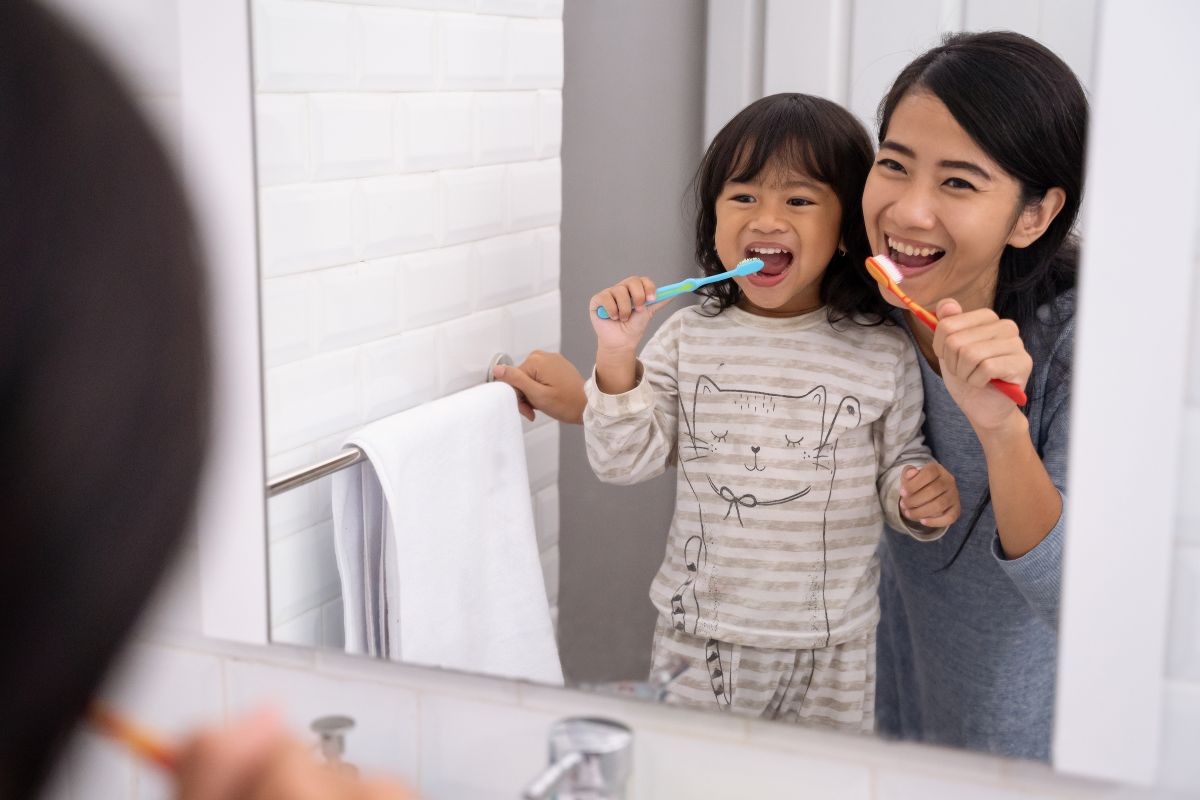Dental Anxiety In Children: What Parents Need to Know

Dental anxiety is the fear or stress experienced before or during a dental visit. It stems from the expectation that dental procedures will be painful or traumatic. This fear can include everything associated with the dental setting—sights, sounds, smells, and even the dentist’s presence.
Dental anxiety is also referred to as dental fear or dentophobia. While the terms are sometimes used interchangeably, they represent different levels of anxiety.
Studies show:
-
50–80% of U.S. adults experience some form of dental anxiety.
-
About 9% of children also suffer from it—and that number continues to grow as they age.
Signs that a child may have dental anxiety:
-
Physical stress or discomfort
-
Nervous palpitations
-
Sudden mood changes or fear
-
Tantrums before or during visits
-
Complaints of feeling sick without a clear cause
Although dental fear is a type of anxiety disorder, it can be corrected. Often, the fear is passed down not genetically, but through learned behavior and repeated negative messaging. With the right strategies, this cycle can be broken.

Why Children Freak Out at the Dentist
A little nervousness is normal. But when a child becomes overwhelmed or panicked, there’s usually a deeper reason. Here are some common causes:
1. Parental Dental Fear
Kids pick up on everything—including their parents’ fear. Research shows a strong link between a parent’s dental anxiety and a child’s own fear of the dentist.
2. Lack of Proper Education
When kids aren’t taught what to expect, they fill in the blanks with their imagination. A single exaggerated story or negative comment can shape their perception of dental care.
3. Fear of the Unknown
Unfamiliar environments and procedures can make children uneasy. Without preparation, a dental office can seem confusing or intimidating.
4. Past Negative Experience
If a child has had a painful or failed dental treatment in the past, that memory can resurface as fear—even during routine checkups.
5. Infrequent Visits
A child who’s never been to the dentist before may panic simply because it’s unfamiliar. The first visit is critical in setting a positive tone.
Early and regular dental visits—starting as soon as the first tooth erupts—can prevent anxiety from taking root. Familiarizing your child with dental care builds trust, promotes good oral habits, and helps avoid invasive procedures later.

Dealing Dental Anxiety in Children: Importance of First Dental Visit
A report proves that early and regular pediatric consultation leads to significant positive results in avoiding dental anxiety, fear, and phobia. Therefore, the age and frequency of dental visits are crucial considerations because 44.4% of children’s dental fears are predicted to arise from these grounds.
Parents are encouraged to take their children to the dentist as early as the first tooth eruption. That is before the first birthday of your child - a regular dental visit has to start. This stage would facilitate a trust-building relationship between your dentist and the child. It would also cater to your child’s dental education and early promotion of good oral hygiene.
Early visits help establish a trusting relationship with the dentist and create a foundation for lifelong oral health. The more familiar the dental environment becomes, the less scary it feels.
Practical Tips to Help Your Child Manage Dentophobia
Now that you know the reasons behind dental anxiety and the importance of your child’s early visit to a dentist, it is equally important to know a few tips on how you can help a child who is already suffering from dentophobia. Here are a few points to remember:
Know why the child is afraid of the dentist
First, it is crucial to determine why a child freaks out upon seeing a dentist. As mentioned,
it could be a result of a negative perception of dental treatments, a previous experience of pain due to a failed dental procedure, or some other associated factors.
Set a Good Example
Telling a child your concrete experience of dental procedures and the positive results it gave you can help them manage their stress. Setting a good example would serve as a reminder that dental treatments aren’t traumatic at all.
Choose the Right Dentist
We always wanted the best for our children. Choosing the right dentist is also key to ensuring that your child’s dental treatment is done with a professional’s proper guidance and care.
Advice Your dentist that your Child is Anxious
Informing your dentist about your child’s anxiety will prompt him to do everything possible to put them at ease. Usually, the dentist explains every procedure politely and ensures a pain-free treatment. Distractions, such as music, are also made use of.
Use Positive Reinforcement
A small token, such as stickers or toys to congratulate a successful dental treatment, leads to courage and motivation. It is also effective in helping a child manage his dental fears.
Consult the Best Pediatric Dentist in Culver City
Dental anxiety in children can lead to reluctance and avoidance of dental care. Therefore, parents and dental professionals need to work together to address dental anxiety in children to prevent future dental problems.
As discussed, you can do this through communication, education, positive reinforcement, and even relaxation techniques such as sedation dentistry. Remember also that preventative measures such as regular dental check-ups and good oral hygiene practices can help to reduce the likelihood of dental anxiety developing in children.
So, never risk your child’s oral health due to the unnecessary fear of dental treatment. Instead, beat every possibility that leads to dental anxiety before it turns too late.
Choose the right pediatric dentist. If you're looking for the most trusted clinic in Culver City, California, set an appointment with Culver City Dentist United Dental Care. Experience a smooth and comfortable dental visit with our trained dental professionals.





